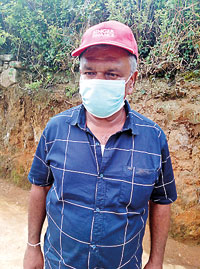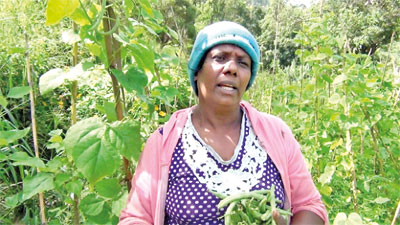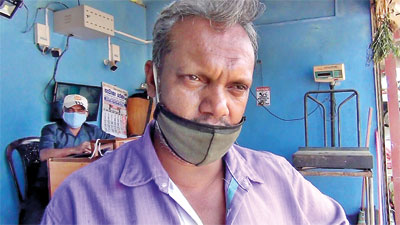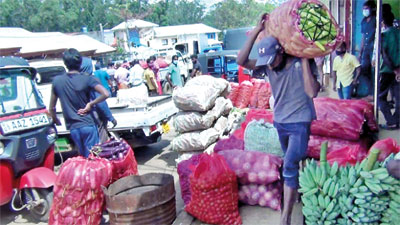News
Despair as produce trucks turned back from markets
Farmers and traders are tearing their hair in frustration and despair as fresh produce fails to make its way to market stalls due to COVID-19 curfews, with crops even being abandoned on farms or ditched at markets as sales fail.
They are pleading for the government and other authorities to find a way out of the problem as their losses mount.

Kumara Senanayake
Farmers from Nuwara Eliya, Welimada, Dambulla, Puttalam and Jaffna are among those affected, with some forced to abandon their crops instead of harvesting them and trying to bring them to markets.
Among the worst hit were farmers who had sent their produce through traders to the Manning Market on Monday after being told the market would be open for trading following the lifting of curfew earlier in the day. The market remained shut.
Small-scale farmers who collectively send their produce through lorries arriving from Nuwara Eliya were also affected, with the lorries being forced to take the vegetables back. Transport operators are also losing money as they have lost business transporting vegetables between farmers, traders and markets.
Most of the afflicted farmers from Kandapola and Nuwara Eliya were minor cultivators with small plots of land, the President of the Association of Lorry Transporters, Nalin Attanayakke, said.
His association takes the vegetables directly to traders.
He said six lorries carrying more than 50,000kg of vegetables were forced to return back to Nuwara Eliya in the absence of a way to hand the load over to traders.
This had caused transporters a loss of more than Rs. 180,000 as the lorries usually carry back wholesale supplies from Pettah. “We are not sure how we can cover the losses,” Mr. Attanayake said. “We are planning to make an appeal to the District Secretary.”

Chandralatha Geavliya
The sudden closure of the Manning Market had cost farmers more than Rs. 400,000 to date, the head of the Co-operative Society of Agricultural Livelihood, Kumara Senanayake, said.
He said most cultivators had pawned jewellery to cultivate plots of lands and were now helpless, with no way to recoup their investment.
Smallholders are the worst off, Mariyasena Wedikkara, a Pradeshiya Sabha member in Nuwara Eliya said.
“I am also a farmer,” he said. “The last time the country was closed due to the COVID situation the government paid compensation of Rs. 40,000 per quarter acre for potato cultivation, but those who cultivated under a quarter-acre were not given compensation.
“This time,” Mr. Weddikara continued, “the cultivators faced obstacles due to adverse weather conditions. Though various governments have been speaking of building proper markets they have failed to provide a secure market.”

D. Kumaradasa
The amount of vegetables able to be trucked around the country had dropped by half. the President of the All-Island Traders Association and Secretary of the Traders Association at the Nuwara Eliya Economic Centre, Aruna Hettiarachchi, said.
The absence of traders at the Welimada market has forced down vegetable prices Welimada farmers said.
“We just recovered after suffering the losses due to the first wave of COVID and thought we were recovering but now we are affected for the second time,” Chandralatha Geavliya, 50, of Vidurupola, Keppetipola said.
Vegetables were being bought cheap and sold at high prices, she said. “It is clear that the farmers are exploited in the absence of a proper system. We urge the government to introduce a system where the farmer is not exploited.”
“Some farmers are unable to meet the cost of transport to take their produce to the wholesale centre,” Ms. Geavliya added.
Businessman D. Kumaradasa, at the Economic Centre in Keppetipola said leeks had plummeted from Rs. 80 a kilo to Rs. 25, while tomatoes, previously Rs. 90 a kilo, were now Rs. 30. Some farmers had thrown away their produce, he said.


Farmers in Welimada: No place to take their vegetables to

Most of the afflicted farmers from Kandapola and Nuwara Eliya were minor cultivators with small plots of land

